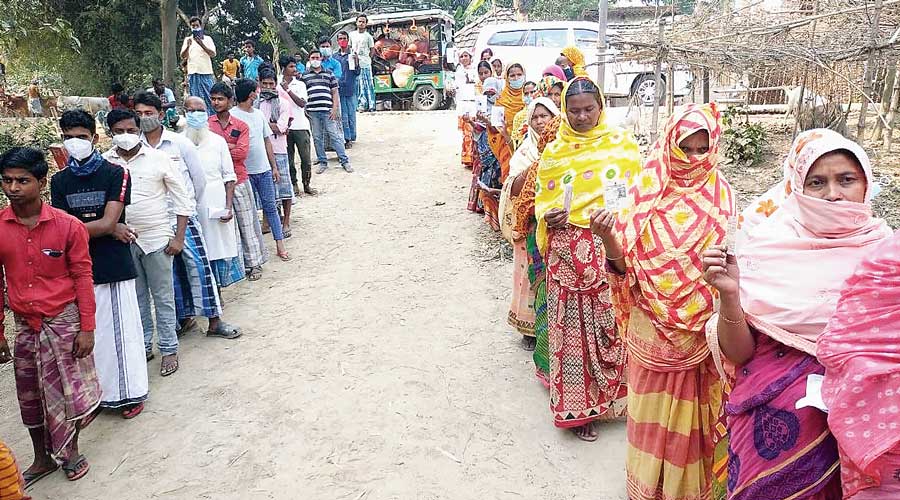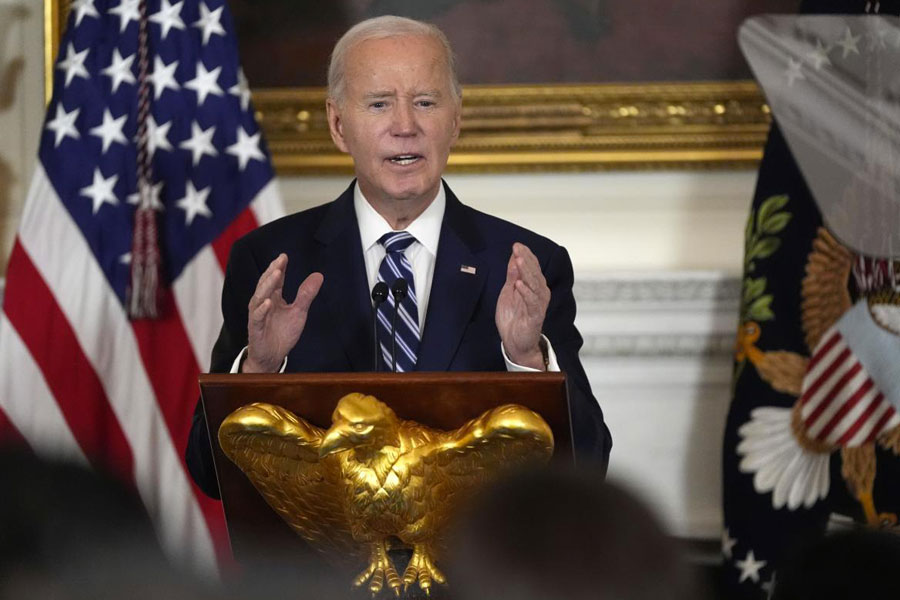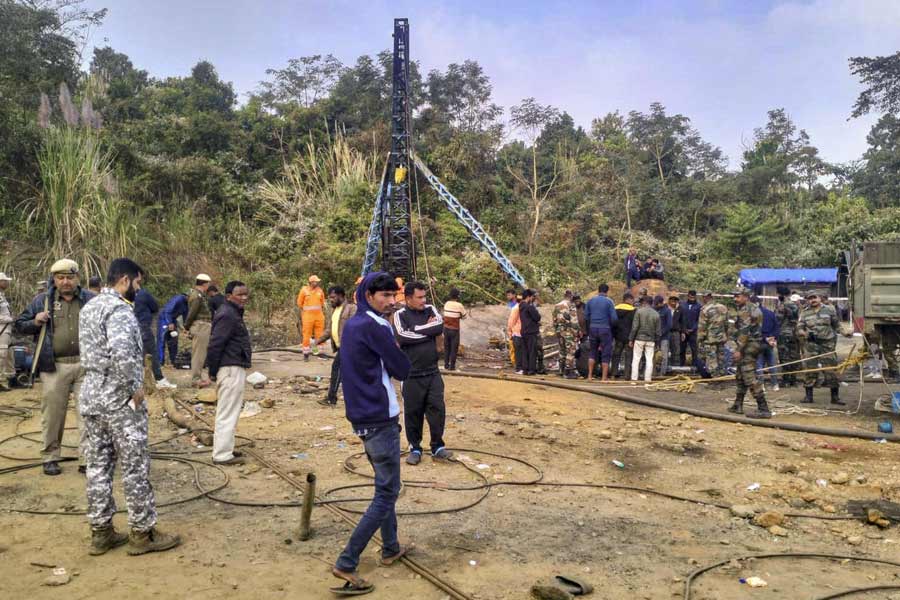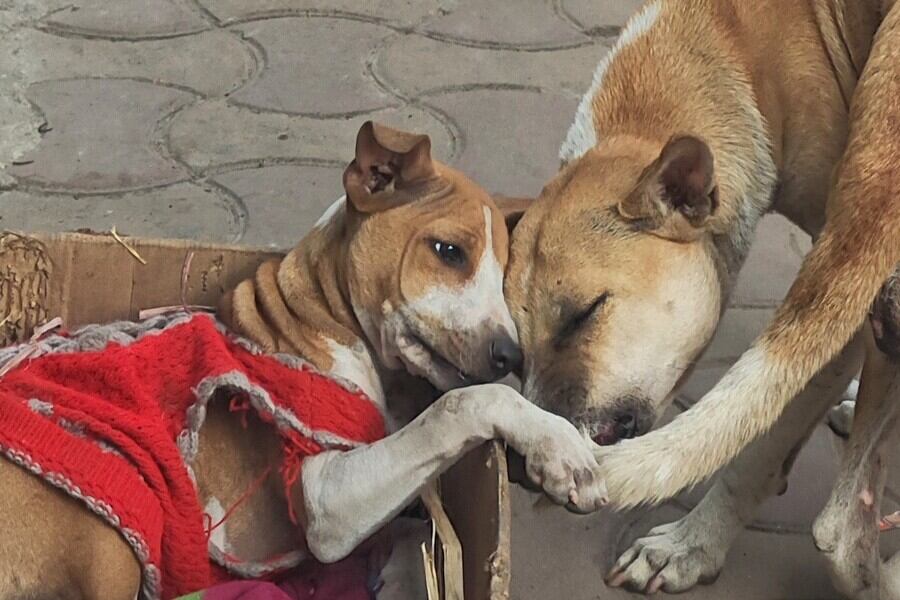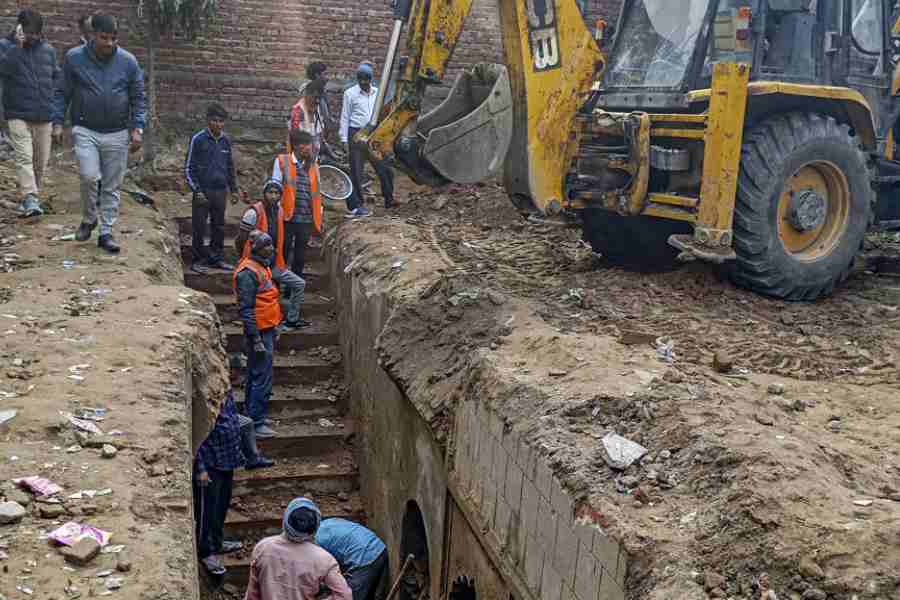The elections held in six of the 12 constituencies in Malda — a district with around 55 per cent minority population — on Monday bore broad hints that the battle was a direct contest between the BJP and the Trinamul Congress.
Over 13 lakh voters went to the booths to exercise their franchise in the first phase of the elections in the district, which has always been a Congress stronghold. The rest of the seats in the district will vote on April 29.
“Unlike earlier elections when the Congress always had an extra edge in most seats in the district, the political equations appear to be different this time. A considerable section of Muslims, who had been with the Congress for decades, seem to be siding with Trinamul,” said Najibar Rehman, an educationist and a political analyst in Malda town.
“This is because of the sudden emergence of the saffron camp and its pro-NRC and CAA narrative, which is being strongly and consistently resisted by Mamata Banerjee,” he explained.
According to him, in the six seats where elections were held today — Malatipur, Ratua, Harishchandrapur, Gazole, Chanchal and Habibpur — the concentration of minorities is higher in around four.
“The presence of minorities is comparatively less in Habibpur and Gazole. It is evident that the BJP would have some advantage in those two Assembly segments,” he added.
During the day, The Telegraph spoke to scores of voters. They said they had changed their mind and unlike in the past when they had voted the Congress, their preference was Trinamul this time.
“The contest in the minority-dominated seats would be interesting this time. In some seats, the Congress might even slip into the third position,” said a Trinamul leader.
Since 2011, when Mamata Banerjee came to power in the state, Malda has been one of the districts where Trinamul could not perform well, both in the Lok Sabha and Assembly elections.
In the Lok Sabha (there are two seats in Malda) polls, the party has never won so far. In the Assembly polls, Trinamul could win only one seat in 2011 but in 2016, the party drew a blank.
During her visits to Malda, the chief minister time and again urged people to vote for Trinamul, while highlighting the development works carried out in the district.
On Monday, however, the situation appeared to have changed to some extent. That the minorities preferred Trinamul to other anti-BJP parties was evident from the gatherings of voters at the election offices opened by the party near the booths in minority-dominated belts.
“A sizeable portion of the minority population feels the Congress’s stand on the NRC and the CAA is much mellowed as compared to the unequivocal stand by Mamata Banerjee that she would never let the NRC, NPR or the CAA be implemented in Bengal. They feel it is the Trinamul supremo who can save them from any prospective inconvenience which will occur if these are implemented in the state,” said Hemanta Sharma, a district Trinamul leader.
In Malda, votes of the minority community determine the election results in around seven of the 12 seats.
Asif Mehebub, a three-time Congress MLA from Chanchal, however, claimed that minorities still believed in the Congress’s capability in fighting credibly against communal forces. “Wait for the results and you would see how Trinamul gets disillusioned,” he said.
The booth offices of the BJP were seen only in some areas of the six constituencies where the concentration of minorities is comparatively less.
Since 2019, after the BJP managed to win one of the Lok Sabha seats in the district, the saffron brigade has taken the task of polarising voters and has engaged organisations like the RSS and the Akhil Bharatiya Vanvasi Kalyan Ashram to drum up support from Scheduled Castes and Scheduled Tribes.
That the BJP is focussing on around five Assembly seats of the district where the concentration of minorities is less was evident as it did not conduct its ‘rath yatra’ in most of the remaining constituencies.
Also, engaging hardliners like Uttar Pradesh chief minister Yogi Adhityanath for campaign and regular reference to issues like cattle smuggling and other crimes in areas near the India-Bangladesh border reaffirmed that the party intended to polarise votes.
District BJP leaders, when asked about the poll results, claimed the minorities were with them and reiterated their narrative that the Congress and Trinamul had not done anything for the people.
“No initiative was taken for their socio-economic development. Also, the infrastructure is poor in most areas of the district. There are no job opportunities and thousands of minority youths have to go to other states. This time, the results would be different,” said Gobinda Mandal, the district BJP president.

